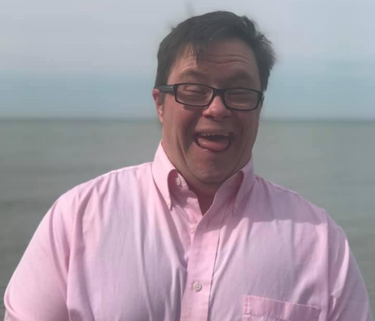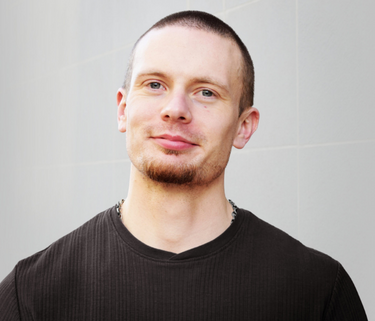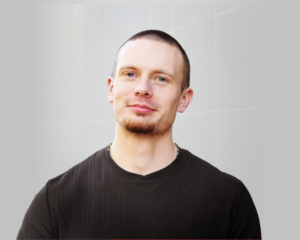Comcast and The Arc Collaborate to Improve Digital Skills and Make Life-Changing Impact for People With Disabilities
Digital access and skills are a critical component of modern life. In 2023, The Arc and Comcast teamed up to help people with intellectual and developmental disabilities (IDD) leverage technology to open the door to new experiences in their communities.
The Arc and Comcast have a long-standing partnership to do this work. The Arc’s national network of nearly 600 chapters provides vital resources and services to individuals with IDD and their families to promote greater independence and opportunity in the community—and through this partnership, since 2017, more than 3,000 clients have received basic digital skills training.
The program continues to expand what’s possible for people with IDD in their professional and personal lives—giving them the tools to chart their own course, just like we all want to do.
Meet Kris, a 59-year-old man with cerebral palsy.
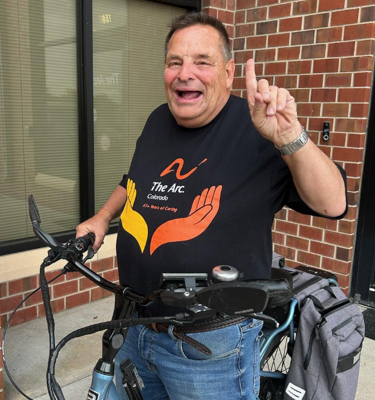 Kris lives with his sister’s family in his hometown of Greely, Colorado, and has been successfully employed for 40 years, currently working full time at the busiest grocery store in town. He is an avid sports fan—Go Bears!—has a busy social life, and because of his gregarious personality he is a bit of a local celebrity, traveling around town on his e-bike. Kris has become very active in civic service—involved with the Chamber of Commerce, volunteering at local nonprofits, and serving in leadership roles at both The Arc of Weld County and on The Arc’s National Council of Self-Advocates.
Kris lives with his sister’s family in his hometown of Greely, Colorado, and has been successfully employed for 40 years, currently working full time at the busiest grocery store in town. He is an avid sports fan—Go Bears!—has a busy social life, and because of his gregarious personality he is a bit of a local celebrity, traveling around town on his e-bike. Kris has become very active in civic service—involved with the Chamber of Commerce, volunteering at local nonprofits, and serving in leadership roles at both The Arc of Weld County and on The Arc’s National Council of Self-Advocates.
To be effective in his new roles, Kris had to better leverage modern technology and communication platforms. He was comfortable with the basic use of his cell phone and his laptop, and The Arc of Weld County provided tech coaching to give him the confidence with the more advanced technology he needed to be successful. Kris learned how to navigate complex websites with multiple drop-down navigation structures and use passwords to access secure portals. His tech coaches showed him how to sync his calendars and email on both devices to stay on top of his busy schedule. He has even mastered accessing virtual meetings. After a long day, his eyes get tired and email can become stressful, so Kris taught himself how to use the read aloud feature to make it easier.
Kris continues to get weekly tech coaching sessions to keep advancing his skills. He is learning to use folders to organize his documents, better managing calendar invites, learning tactics to ensure he is responsive, and understanding how to identify and handle junk or malicious email. Like many of us, passwords and computer updates can still “throw him for a loop” from time to time, but he stays patient, and as he says, “It feels good when you figure something out.”
By advancing his technology skills, Kris has been able to pursue work that he feels is incredibly important. He shares his lived experience as a person with IDD while counseling disability organizations at the local, state, and national level on how to better support people with disabilities. “I know what it feels like to feel like you are not heard. I want to help people be heard.”
Meet Roselyn, a 60-year-old woman with Down syndrome.
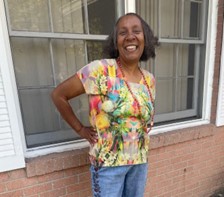 Roselyn has lived with her mother and received support from The Arc of Greater Indianapolis since 1981. During the week, Roselyn works at Corteva Agriscience through The Arc of Greater Indianapolis’ employment services. She works as part of a team that assists scientists in preparing seedling trays for growing new plants, hosing down trays when experiments are complete, and keeping the greenhouse labs clean. Roselyn is very proud of her work and the independence she has from earning a paycheck. She recently bought a kitchen table set and used her tax check to buy a new washer and dryer.
Roselyn has lived with her mother and received support from The Arc of Greater Indianapolis since 1981. During the week, Roselyn works at Corteva Agriscience through The Arc of Greater Indianapolis’ employment services. She works as part of a team that assists scientists in preparing seedling trays for growing new plants, hosing down trays when experiments are complete, and keeping the greenhouse labs clean. Roselyn is very proud of her work and the independence she has from earning a paycheck. She recently bought a kitchen table set and used her tax check to buy a new washer and dryer.
However, when her mom had to be moved into a nursing home quite abruptly, Roselyn needed an emergency placement. The Arc of Greater Indianapolis helped move her into a new living environment with staff support. Roselyn enjoys the financial independence that comes with working—for example, she has a standing hair appointment every two weeks for some pampering at the salon. With more activities in the community, Roselyn started wanting to enjoy some alone time without staff having to be with her. This was going to require some tech coaching to do so safely.
Roselyn had used cell phones over the years, but she never really explored the features they offered and would either lose or break them. If she wanted to call family, staff would have to help her. Staff at The Arc of Greater Indianapolis worked with Roselyn regularly for a couple of months as part of these tech coaching sessions. They helped her learn how to call and text family, friends, and staff and how to contact help if she ever feels unsafe. She has learned how to access the internet and use apps like Voice to Text to look things up and connect with friends. Now, she gets time to herself each day. Roselyn gets home from work around 1:30, but her staff don’t arrive until 3:30. She either calls or texts them, though, to let them know that she made it home safely. Then she spends some time searching for videos on dogs and cats (she loves showing these to her staff later) as well as watching her favorite shows online (she especially loves Night Court and Law & Order). If the weather is bad on Sundays, Roselyn even watches church online. When she’s not working or using her phone, she likes doing 5,000-piece puzzles, going shopping, and seeing her Colts or Pacers play.
Through tech coaching, Roselyn has achieved a newfound sense of independence. You never fully appreciate how nice it sometimes is to be alone if you’ve never been able to experience it. Roselyn loves her work, friends, family, and the staff who work with her. However, sometimes it’s wonderful to just spend some time alone.
“When we provide access to digital skills training, we create opportunities and pathways to independence that can be life-changing, especially for those living with disabilities,” said Dalila Wilson-Scott, Executive Vice President and Chief Diversity Officer of Comcast Corporation. “Partnerships, like the one we’re proud to share with The Arc, are at the heart of what drives us each day at Comcast because of the many lives we’re able to help impact. We’re so very honored to continue to grow our work together and help enrich even more lives.”
Comcast’s partnership with The Arc is part of Project UP, the company’s comprehensive initiative to address digital inequities and help build a future of unlimited possibilities. Backed by a $1 billion commitment to reach tens of millions of people, Project UP is focused on connecting people to the Internet, advancing economic mobility, and opening doors for the next generation of innovators, entrepreneurs, storytellers, and creators.

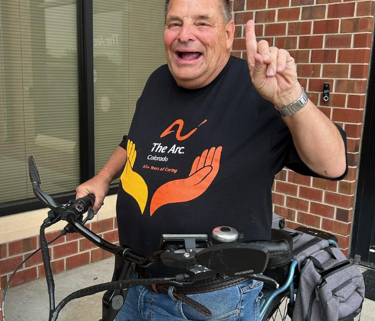

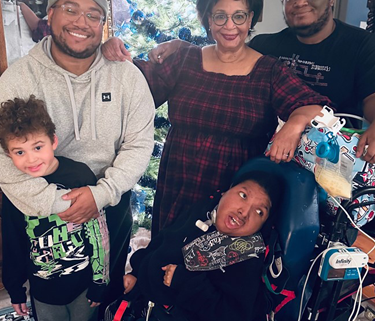
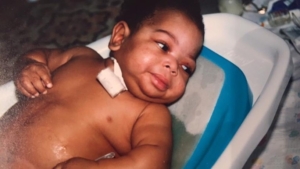 Debbi’s son Josh was born eight weeks early with a grade four brain hemorrhage. As she shares, “He was one of the sickest babies in the neonatal intensive care unit. It started our roller coaster of a journey of having a child with complex medical needs and disabilities.”
Debbi’s son Josh was born eight weeks early with a grade four brain hemorrhage. As she shares, “He was one of the sickest babies in the neonatal intensive care unit. It started our roller coaster of a journey of having a child with complex medical needs and disabilities.”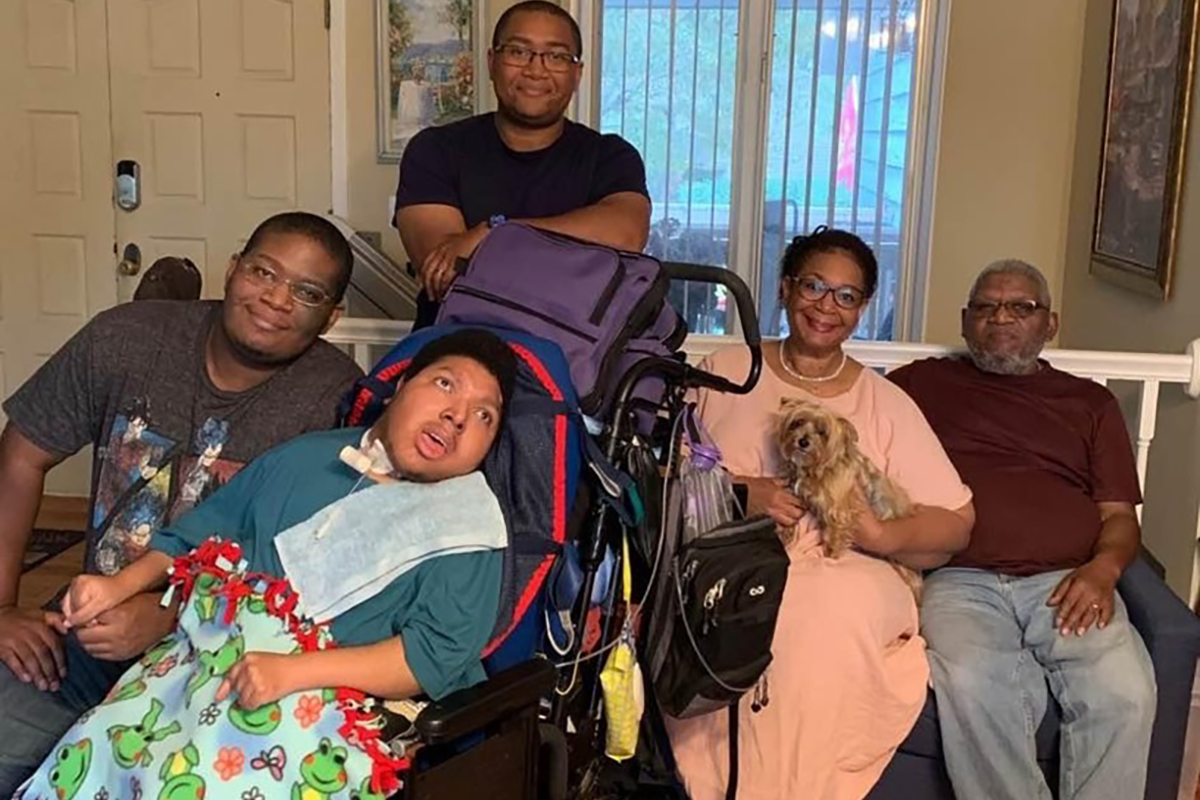 Out of crisis came purpose. Debbi soon immersed her family in The Arc’s chapter support systems, connecting her sons to sibling workshops and herself to a parent networking group. “We still count on those relationships for support today,” added Debbi.
Out of crisis came purpose. Debbi soon immersed her family in The Arc’s chapter support systems, connecting her sons to sibling workshops and herself to a parent networking group. “We still count on those relationships for support today,” added Debbi.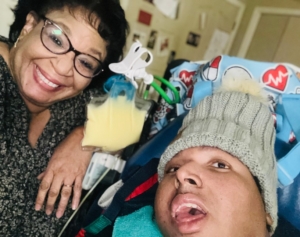 Once The Arc of the United States got word of Debbi’s powerhouse advocacy, we invited her to apply for the Board. Her proudest volunteer moments have been spearheading the creation of The Arc’s
Once The Arc of the United States got word of Debbi’s powerhouse advocacy, we invited her to apply for the Board. Her proudest volunteer moments have been spearheading the creation of The Arc’s 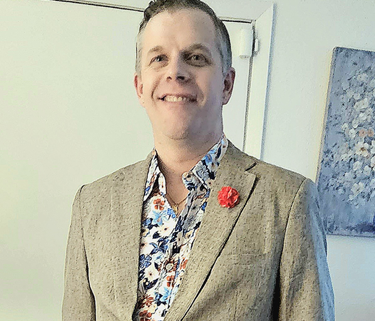
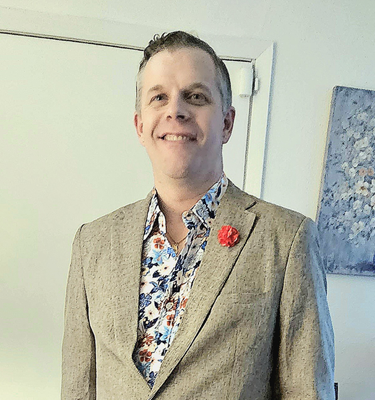 Working with people with disabilities is Lawrence’s long-time passion. He has worked as a direct support professional (DSP) in New York and Texas, both before and after serving in the Army. As a DSP, Lawrence takes pride in the trusted role he has in the lives of people with disabilities. He helps transport people to and from appointments, gives medicine, cooks, cleans, dresses, changes, and feeds people who may not be able to do these things for themselves. He even seeks out specialized training that is needed to support people who have challenging behaviors that may result in injury to themselves and others.
Working with people with disabilities is Lawrence’s long-time passion. He has worked as a direct support professional (DSP) in New York and Texas, both before and after serving in the Army. As a DSP, Lawrence takes pride in the trusted role he has in the lives of people with disabilities. He helps transport people to and from appointments, gives medicine, cooks, cleans, dresses, changes, and feeds people who may not be able to do these things for themselves. He even seeks out specialized training that is needed to support people who have challenging behaviors that may result in injury to themselves and others.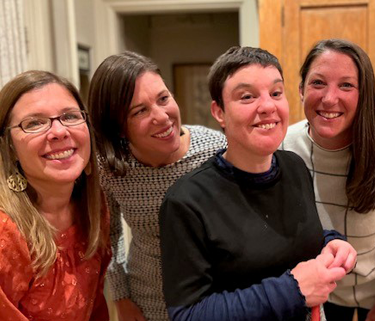
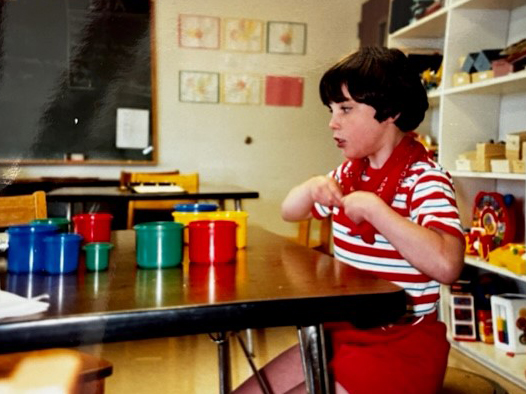 Julia started attending a pre-school run by United Cerebral Palsy, where they received a flyer for a family event hosted by AHRC New York City. The whole family spent a Saturday afternoon connecting with other parents, siblings, and children with disabilities.
Julia started attending a pre-school run by United Cerebral Palsy, where they received a flyer for a family event hosted by AHRC New York City. The whole family spent a Saturday afternoon connecting with other parents, siblings, and children with disabilities.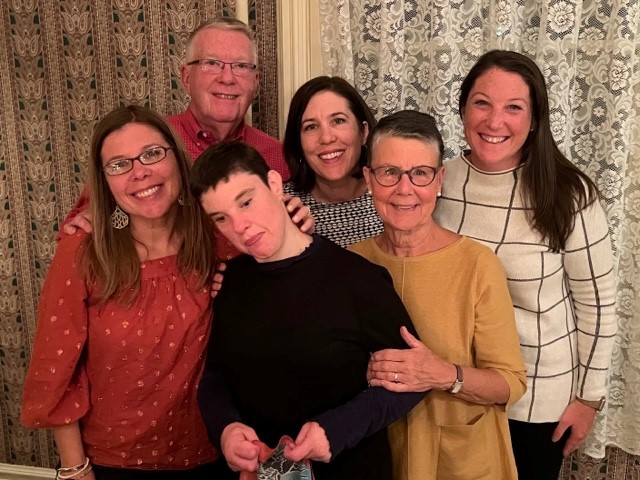
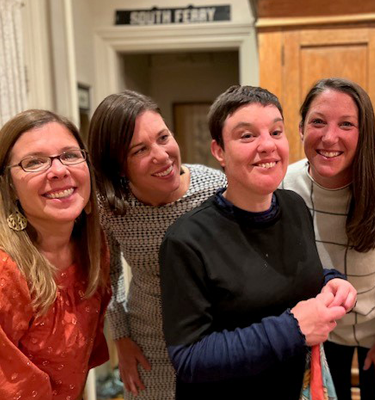
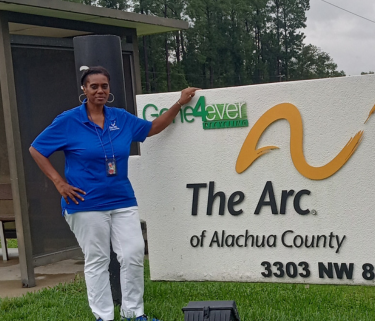
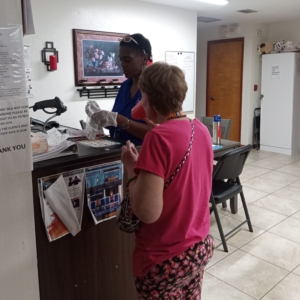 Betty has always had the innate ability to create a safe space for disabled people. As a child, she would talk to them in the grocery store, at church, and on the street. At the age of 18, she found herself running a daycare center and was drawn to do more for the disabled children who came through her doors. She enrolled in disability studies at Santa Fe College, which was right across the street from The Arc of Alachua County. Upon graduating, The Arc of Alachua County immediately hired her as a DSP. That was 20 years ago, and Betty has never looked back.
Betty has always had the innate ability to create a safe space for disabled people. As a child, she would talk to them in the grocery store, at church, and on the street. At the age of 18, she found herself running a daycare center and was drawn to do more for the disabled children who came through her doors. She enrolled in disability studies at Santa Fe College, which was right across the street from The Arc of Alachua County. Upon graduating, The Arc of Alachua County immediately hired her as a DSP. That was 20 years ago, and Betty has never looked back.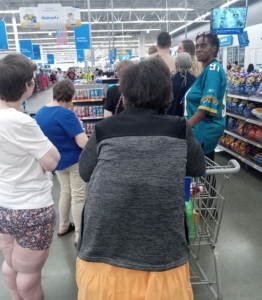 role of DSPs, chronic underinvestment in Medicaid’s home and community-based services has led to paltry wages and training, which has created a nationwide shortage of workers. As Betty says, “Spend a day in our shoes. It might seem like what we do is easy, but it’s not. There’s no training, so I had to learn on the job, and there’s not enough staff. Sometimes, I have to work without a break, cover the next shift, or come in on weekends, but I don’t have a problem with that because I want my clients to be happy. Their families tell me all the time that if I wasn’t in their lives, they don’t know what they’d do or where they’d be.”
role of DSPs, chronic underinvestment in Medicaid’s home and community-based services has led to paltry wages and training, which has created a nationwide shortage of workers. As Betty says, “Spend a day in our shoes. It might seem like what we do is easy, but it’s not. There’s no training, so I had to learn on the job, and there’s not enough staff. Sometimes, I have to work without a break, cover the next shift, or come in on weekends, but I don’t have a problem with that because I want my clients to be happy. Their families tell me all the time that if I wasn’t in their lives, they don’t know what they’d do or where they’d be.”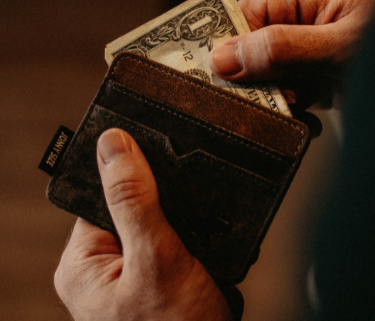
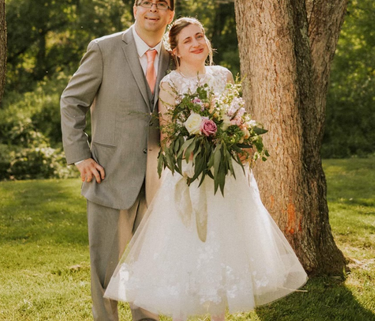
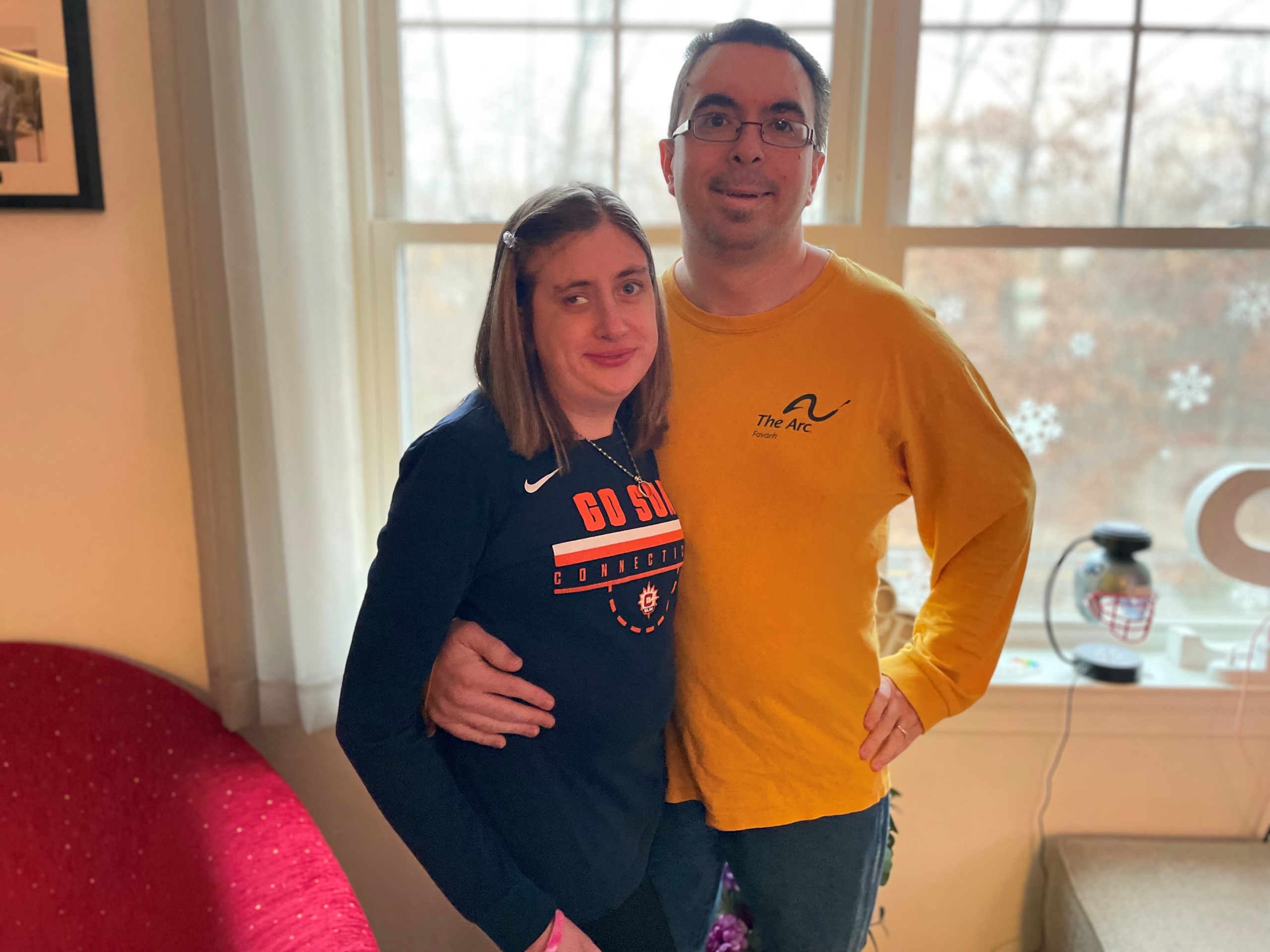
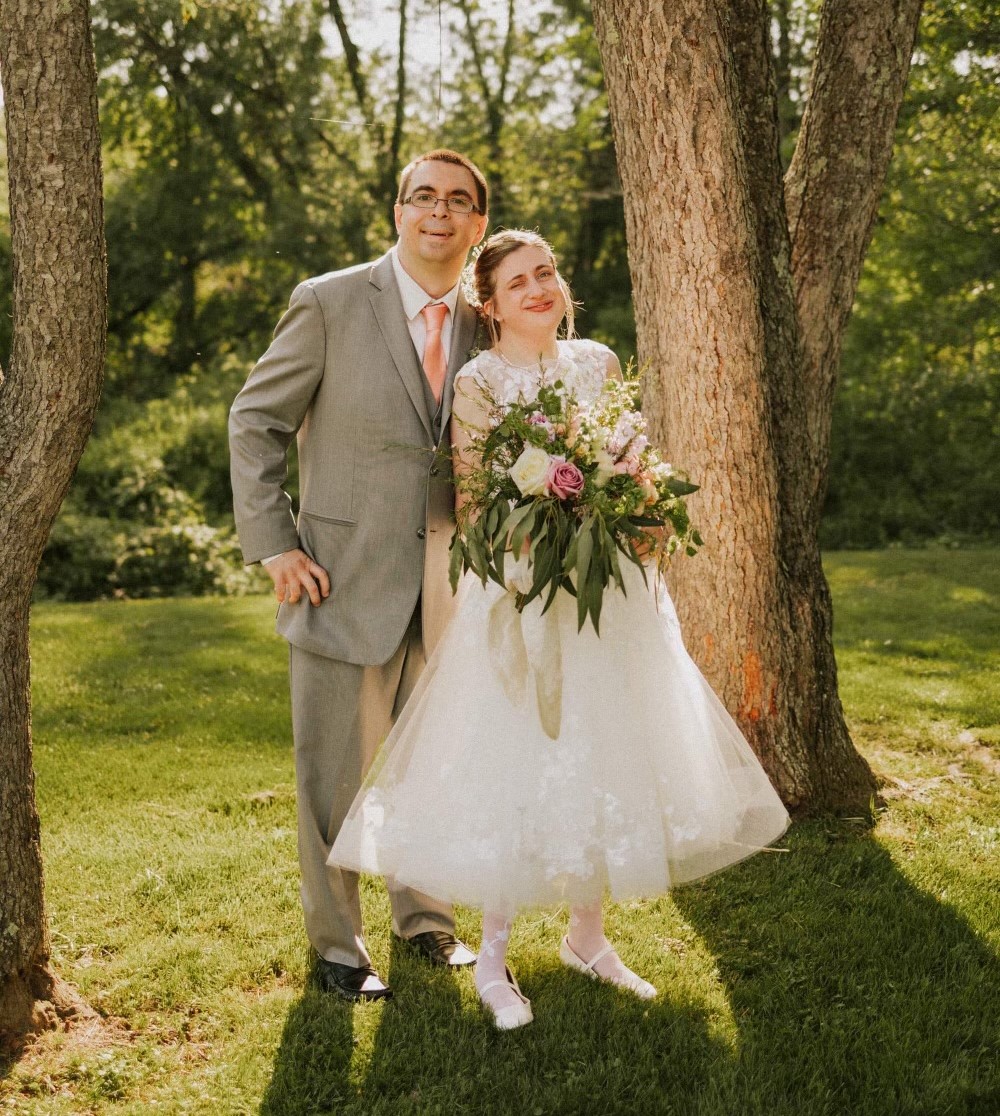
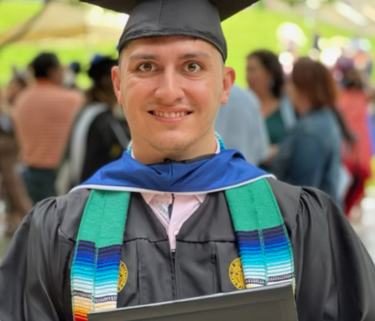
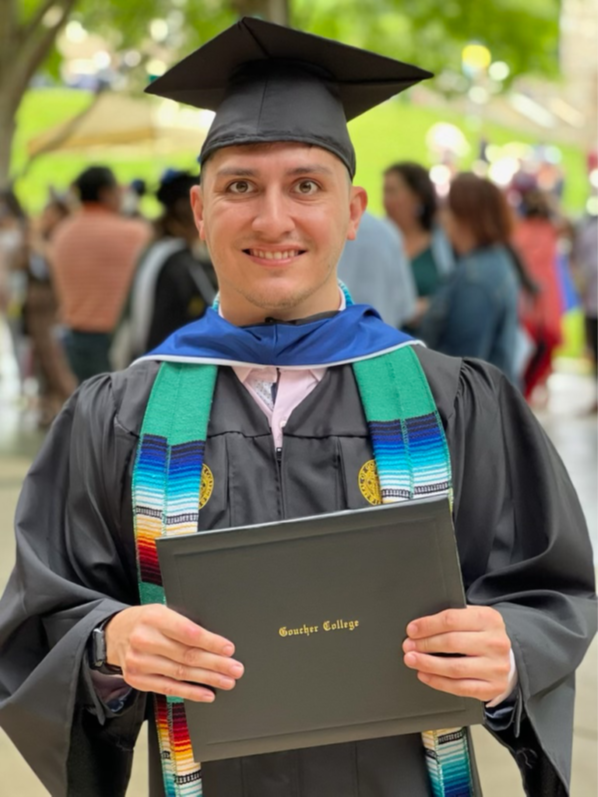
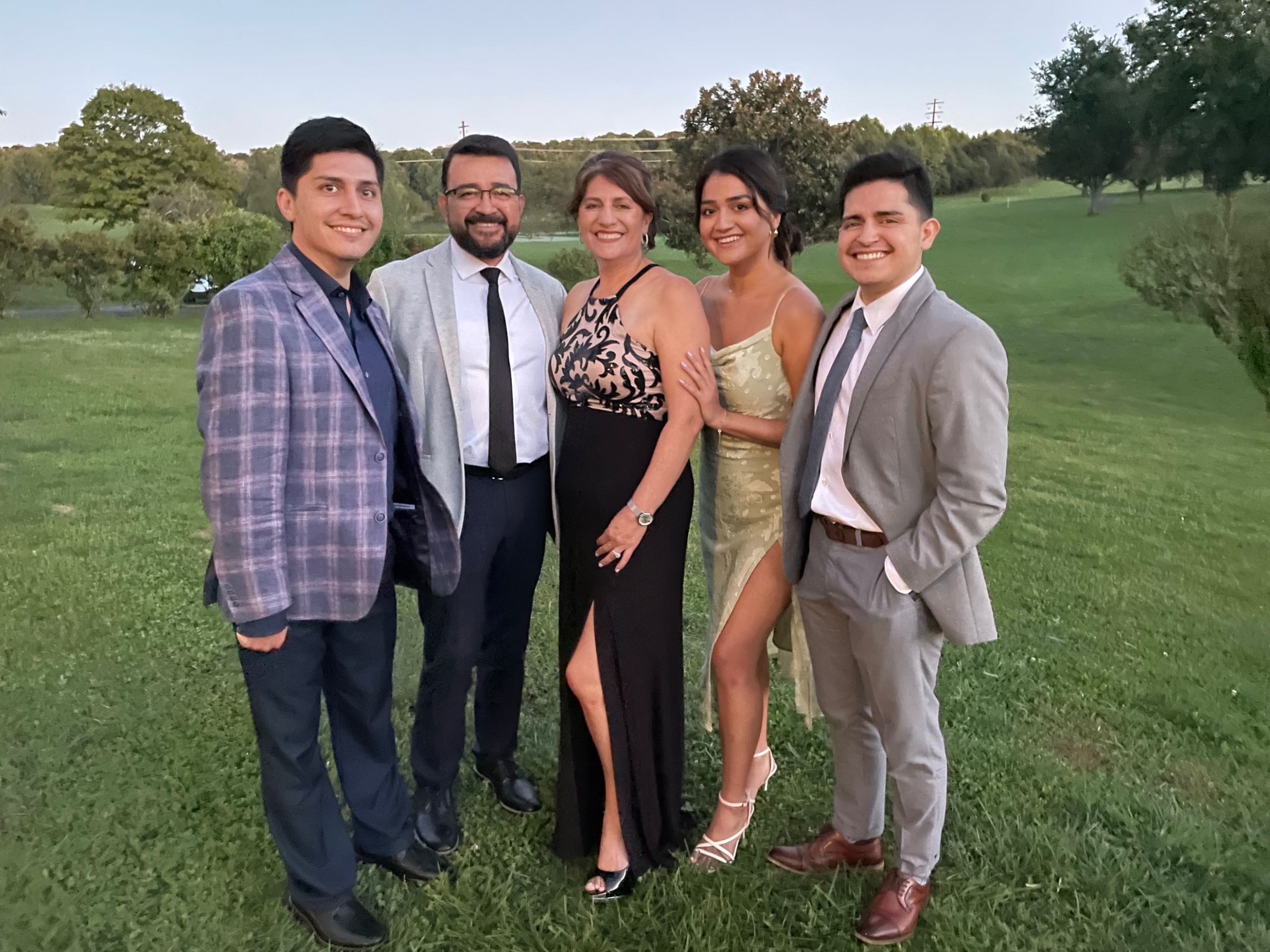 Carlos now works at TDezz Badass Creations as part of the accounting and management department. He likes the job and enjoys helping people. But he dreams of opening his own business or working in Washington, DC. He loves going to the movies and the mall, especially with his girlfriend Naya whom he met in community college. He loves his dogs Lucas and Tyson, his siblings David and Karla, and his parents Maria and Carlos who are the most important people in his life and have been there for him through it all. He visits his relatives back in Ecuador often and is proud of his family.
Carlos now works at TDezz Badass Creations as part of the accounting and management department. He likes the job and enjoys helping people. But he dreams of opening his own business or working in Washington, DC. He loves going to the movies and the mall, especially with his girlfriend Naya whom he met in community college. He loves his dogs Lucas and Tyson, his siblings David and Karla, and his parents Maria and Carlos who are the most important people in his life and have been there for him through it all. He visits his relatives back in Ecuador often and is proud of his family.